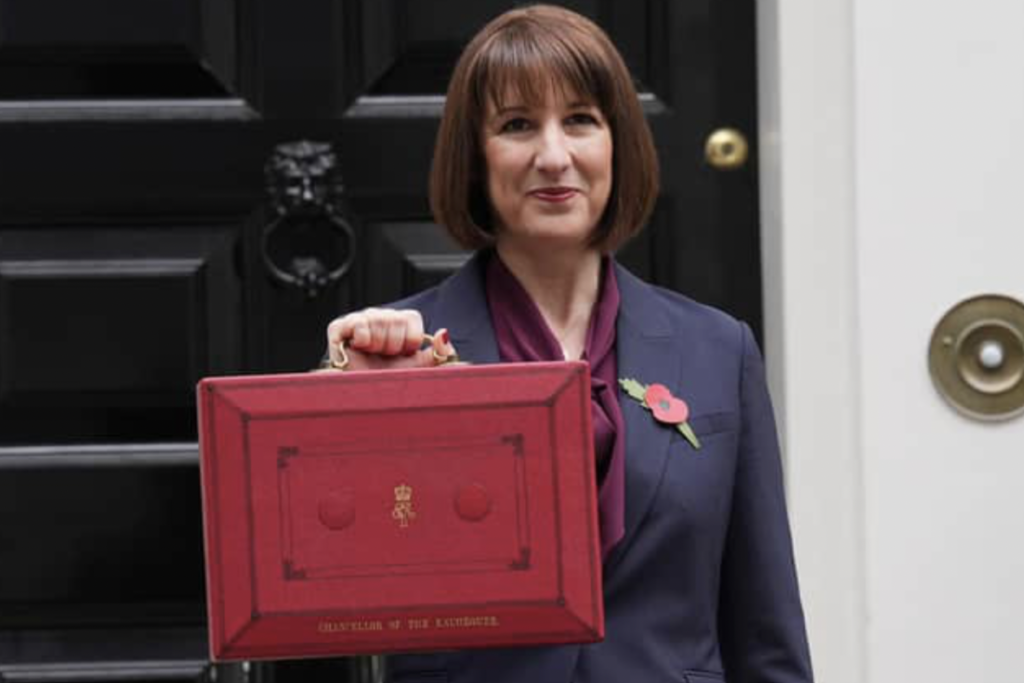The Chancellor is understood to have delayed the second phase of the pensions review, which was looking at retirement adequacy.
The Financial Times reported that Rachel Reeves was concerned this would result in an increase to employer contributions, creating additional financial pressures for UK businesses in the wake of the Budget decision to increase employers’ national insurance rates.
Pensions minister Emma Reynolds had initially said that this phase of the pensions review would be launched by the end of this year. This phase of the review has now been delayed, potentially indefinitely, with no new timetable announced.
The decision to put this phase of the review on ice has been criticised by many across the pensions industry, who warn that current minimum auto-enrolment rates will not deliver adequate retirement incomes for the majority of UK workers.
Currently employers have to make a minimum contribution equivalent to 3 per cent of employees’ qualifying earnings, with employees adding a further 5 per cent. Various reports have recommended contribution levels closer to 12 per cent, split evenly between employers and employees. Many point out that employer contribution levels into older DB schemes were between 15 and 20 per cent.
A previous independent review of auto-enrolment, approved by parliament, suggested increasing AE contributions “in the mid-2020s”.
Standard Life retirement savings director Mike Ambery says “This is disappointing news if true as at current levels of savings we are storing up problems for the future.
“Our modelling shows that by the early 2040s, three in five people will be entering retirement with inadequate savings. We’ve argued that changes can be implemented as economic conditions allow and that a key step is to set out a roadmap so businesses and individuals know the direction of travel.
“In Australia they have sought to bring savings levels up over a long timeframe and a similar strategy of small, incremental change over an extended period could bring about real benefits.”
Smart Pension CEO Jamie Fiveash called on the chancellor to prioritise this in the new year. He says: “We are deeply disappointed to learn the Chancellor has postponed the urgently needed pensions review, which is crucial for securing the UK’s long-term economic stability as well as the financial security of millions of people when they reach retirement.
“When this new Labour Government came to power, it promised to fix the foundations of the country. There is no more foundational issue than our pensions timebomb. With nearly a third of savers set to fall below the minimum retirement living standard, delaying this review risks compounding an already pressing problem. Savers deserve clear leadership, decisive action and a plan to protect their futures.”
Hymans Robertson head of pensions policy innovation Calum Cooper adds: “ A prolonged, open-ended delay will be damaging for industry confidence in the ability for real change to take place. More importantly it defers better retirement prospects for millions of people. Retirement adequacy is an enormous issue for savers heading towards retirement, and in turn this will remain an ongoing concern for future governments and UK society as a whole.
“There should be nothing to fear from undertaking a meaningful pension review to tackle the adequacy challenge. Given the lack of timescale provided, this delay could add months and years to the formation and implementation of decisions. The positive effect of those changes would be measured in generations, so it is vital that it happens. The potential positive impact of the delay will be felt by businesses and employers in the short term. This is an important consideration to factor into the timing of the review, as should be the cost-of-living challenge facing people today. These are just two examples of many, including lack of home ownership, household financial resilience, financial education, and school programmes, that should influence the shape and timing of any new policy interventions. The Government has cited concern about the impact of the review on businesses. But it could start tomorrow with any impact delayed until a future date.
Lang cat director of public affairs Tom McPhail adds: “News of the government’s decision to delay phase two of the pension review is not a great surprise, given their recent Budget announcements on the minimum wage and national insurance. Nevertheless, it will be met with widespread disappointment across the financial services industry and associated public policy stakeholders.
“The achievements of the Turner Commission 20 years ago, laying the foundations for auto-enrolment are being eroded by the ongoing failure of successive governments to develop the workplace pension system which was created in the early 2010s.
“The retirement needs of millions of workers, both employed and self-employed are not being met by the current system.
“There are a number of critical issues which need to be addressed. Participation rates, particularly among the self-employed are too low; savings rates are not high enough across the majority of the population; the cost of state pension is escalating, yet it is barely adequate for many lower income pensioners; the savings system fails to dovetail in any meaningful way with housing or social care.”
He adds: “If the government isn’t willing to tackle head-on the tough political choices a pensions review entails, it should appoint an independent commission to take on the hard work instead. A commission could build political consensus for the difficult decisions which urgently need addressing and could provide elected officials with the necessary air-cover to actually implement some of these changes.”
The first phase of the pensions review is looking at how pensions can deliver better value for savers and for the economy by consolidating to boost investment into productive finance and the UK economy. This has led to Reeves announcing plans to create DC workplace ‘megafunds’ which would need minimum assets of £25bn.
